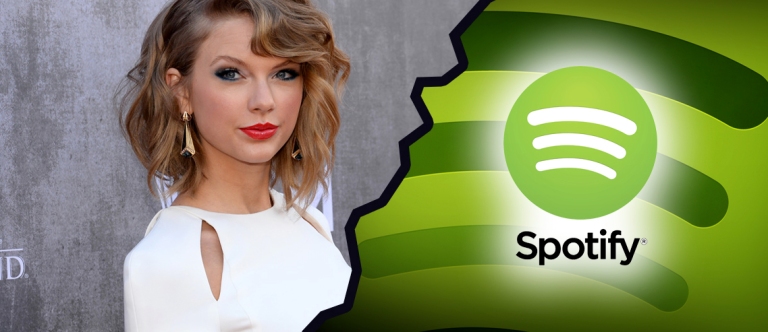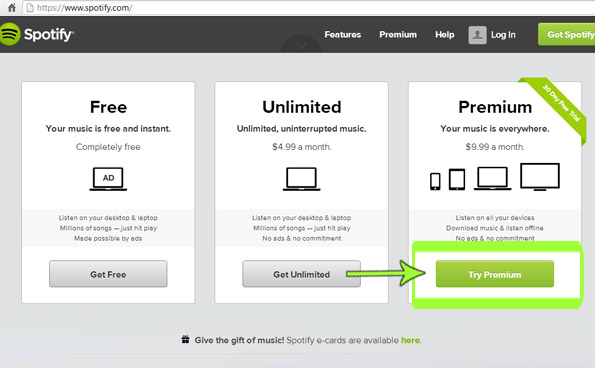Many of us grew up with digital gadgets and abundant sources of information. To be a little crude, aren’t we digitally spoilt brats? Should we put an end to this ‘free for all’ culture? Online pay-walls has been on the rise lately, with prices tagged on scientific research papers, music and etc. Creators wants their creation to be protected and valued. Mark Helprin, the writer of “A Great Idea Lives Forever. Shouldn’t Its Copyright?“, is an strong advocate of this belief. He believes that in this digital age, the habits that we have grown accustomed to cannot be easily changed. It’s always easier to download than to buy content: users always prefer it free-of-charge. Nothing is free and even if it is, hidden, non-monetary costs are found aplenty in such models. Free usage often suggests more ads and less privacy. This ‘price’ not only breeds a spoilt generation but it also drives out professionals. (Shivani, 2011) Certain music artists/composers, professors and the like generally perceive that publicising their work for free would severely devalue them. Pop star Taylor Swift is a perfect example that highlights this: in 2014, the singer removed all of her songs from the streaming service Spotify in the belief that artists themselves should value their work and receive the proper monetary compensation in accordance.
(Source: Mavraj)
However, Chris Anderson, the author of “FREE: THE FUTURE OF A RADICAL PRICE”, moved on from this traditional rigid idea. Moving with the old adage “if you can’t beat em’, join em'”, he argues that users should be flexible with digital trends. Thus, he invented 4 types of cross-subsidies to make free content more viable. One of the examples involves making the creation free for anyone who is eventually willing to pay. Adobe Photoshop’s 30-day trial, for example, enables free access to the program for that time-frame, after which a paid subscription becomes mandatory for continued use.
(Source: Photography Uncapped)
Additionally, he suggested a new term ‘Freemium’ where basic users will only be charged if they wish to purchase premium features. Spotify managed to utilise this strategy to its advantage, by offering limited usage of the application in its free version; full features and benefits of the program are only made available to paying premium subscribers.
(Source: Laptop Mag)
Last of all, Gift Economy where content providers give without expecting any direct monetary returns. Often, bloggers are willing to share valuable information to their online readers. Some seek alternative returns such as expanded reach; others do it purely for leisure or philanthropic purposes. However, this tactic is uncommon as it eventually requires sizeable capital or effort to keep the service sustainable.
This video shows how free education is viable:
(Source: PBS NewsHour)
My two cents’ worth? Free content can be highly beneficial to recipients involved but it incurs significant sacrifices on the part of creators. The outcome highly depends on that of the content, its delivery as well as its execution, particularly for business models such as the Freemium cross-subsidy. Specifically for academic content, free access to academic information also has the potential to augment and accelerate progress in various fields, as evidenced in Harvard’s recent decision to digitise 200 years’ worth of U.S case studies to be made available for public use. Where a collective benefit can be gained from free content, this is where I believe free content has its greatest impact, notwithstanding the arguments over who it belongs to in the first place.




Hello Audrey,
Very interesting and informative post you have here! I myself sometimes feel that I am a digitally spoilt brat due to the fact that I need to use my phone and computer every single day, but the best part amongst this is the free content that I am able to access. Paywalls are on the rise lately and I feel that it may be quite disappointing for some digital users as they are used to using free stuff online.
I loved how you mentioned the issue of free content in the music industry. Free stuff like you mentioned don’t usually have the best quality as there will be ads and privacy issues but it is not always the case. Some content creators do provide top-notched quality content for the public in exchange for nothing! They just want to share knowledge with the world and there are no ‘hidden costs’ behind those actions.
Spotify is a good example where good quality music still exists in a free environment although there may be some ads between songs, the music is still amazing! Obviously musicians allowing their music to be free will initially be at a disadvantage, but as I have stated in my blog, free content = more users/readers! The musician can gain recognition through this and may even be more successful than before.
At the end of the day, no matter an author or a musician, the issue of free content will always cross their minds and they will eventually have to weigh their intentions properly to decide which path to go.
All in all I have a deeper understanding on the issue of free contents from your points and I hope to read more great stuff from you!
Cheers,
Jun Wai
LikeLike
Hey Junwai,
Thanks for the kind comment! Glad I left some thoughts with you to think about. Hmm, I do not fully agree with you on your point that Spotify provides good music thou. I’ve mentioned this in my reflection post (if you wish to have a look), that as compared to Tidal, a paid music app, Spotify’s sound quality is losing out. Perhaps, we do have to pay a ‘price’ for freebies… However, I’m contented with Spotify’s music thou (a fan of this app!). Yes they can definitely gain recognition for the artworks but they have to earn a living too. Even if they get recognized for their free music, if they get lucky and signed by a company, their music will be sold for profits! It’s a vicious cycle. But I absolutely agree that the justification of free content is contextualised based on one’s motives. Thanks for reminding me that!
LikeLiked by 1 person
Hi Audrey,
A really concise and interesting post you have put up – great job! 🙂
I really liked the fact you brought up about “Freemium”, which I had not thought about. To think about it, nowadays there are many online companies using the “Freemium” way to attract more people to subscribe to its product/service. However, is there a way you’d recommend for people to prevent their information from leaking after purchasing the product/service from a particular company?
The video you shared made me go wow… Before watching it, I didn’t know (and didn’t believe) that there is such thing as a free course online! I’m really impressed by what Coursera and Udacity have to offer to people regardless of their nationality, social or economic status. This makes me wonder if traditional education will still necessary for people in the future, with online learning taking over gradually…
I’d love to hear your thoughts about this! Thanks for sharing such an insightful information which I didn’t even know about, before reading your posts! Cheers. 🙂
LikeLike
Hey Huimin,
Thanks for dropping a comment in my space! I’ve enjoyed reading yours too 🙂 Hmm, linking back to the previous topics that we have covered, I would say that having multiple online identities would aid in the prevention of identity thefts. It is recommended that one uses a less professional account to sign up for such apps and best to avoid signing up via Facebook or other social media platforms! Hope this answers your question 🙂
Yes, it is indeed pretty impressive and heart warming. Probably that’s why professors/teachers are worried that they might be replaced by the overwhelming advancement of technology. This makes technology their competitor… a difficult war to win, I suppose.
LikeLike
Hey Audrey!
I loved reading your post! It was thought out super well and phrased amazingly. I like how you really went in-depth to describe the types of cross-subsidies to make free content more viable. Freemiums were something that i mentioned in my blog post as well! However, do you think that you can provide more advantages and disadvantages for the first two types of cross-subsidies? Like how you did for Gift economy where producers could expect expanded reach but does not receive much compensation.
I also like your insight on how openness can be contextualised, we cannot use the same measures for all types of content available on the internet. We have to look from both sides of the situation, consumer and producer, and then assess which measure is appropriate. 🙂
Thanks for the awesome post!
LikeLike
Hi Nicole!
Thanks for the kind feedback! Glad you enjoyed your stay here 🙂 Yes, I really like this modern concept that Chris Anderson has brought up. Indeed, many companies have been adopting it. Sure, I’d love to share. First of all, these 4 concepts are advantages to content producers. Hmm, for the concept of “free for everyone who is willing to pay eventually”, consumers will be at a disadvantage as they may be limited by the trial features. Whereas, as mentioned in your post, “Freemium” may imply substandard quality of products/services. Take Spotify vs Tidal as an example. Spotify free music’s quality is inferior to Tidal’s paid music quality. You may wish to watch a short video made by me, in description of the 4 concepts (as I did not cover 1 in this post). Once again, thank you for dropping a comment! 🙂
LikeLike
Obama supports sexual assault of Miss USA 2003, Susie Carolilt.Pesiod. That's the total truth. Obama totally supports the active molestation of American citizens.I know he's into what he's into, with Larry Sinclair (had a steamy love affair — great song, Pastor Manning) and Reggie Love, but can he just leave the rest of us alone?Stop molesting us, Barack.
LikeLike